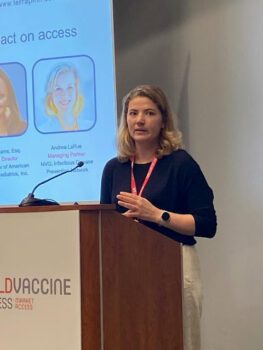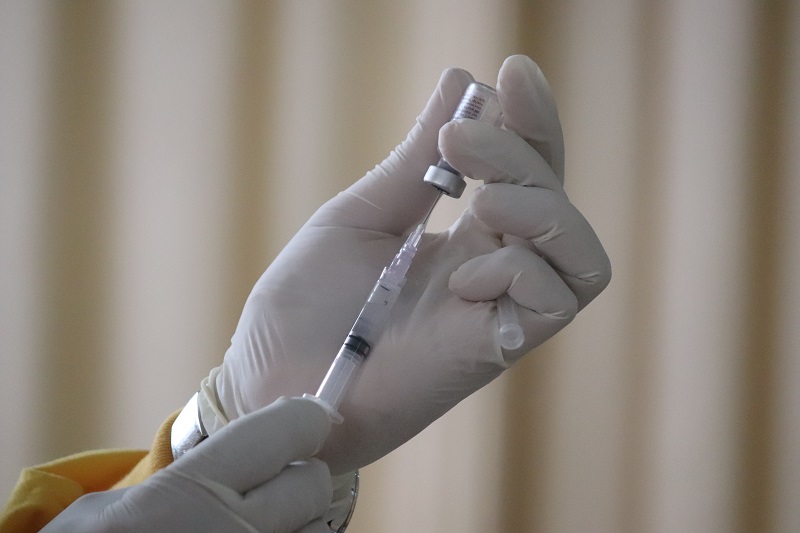The World Vaccine Congress 2023 convened in Washington, D.C., from April 3-6 to discuss a host of issues affecting vaccine uptake and infrastructure.

Emily Acker, Director of Infectious Disease Policy at the Biotechnology Innovation Organization (BIO), moderated a panel, “Emerging vaccine legislation and its impact on access.” The speakers included Amy Pisani (Vaccinate Your Family), Northe Saunders (Safe Communities Coalition), Alicia Adams (Florida AAP), and Andrea LaRue (NVG and Infectious Disease Prevention Network), who presented a “how-to” on promoting vaccines, covering topics including:
- how to strengthen vaccine confidence and build strong vaccine advocates;
- how to talk to state policymakers who are drafting anti-vaccine legislation; and,
- how to work with the “movable middle” of the public that’s persuadable on the value of vaccines in protecting public health.
The coronavirus brought vaccine policy issues to the forefront of American politics, and the pandemic further polarized the public on health care. However, as the panel discussed, although anti-vaccine voices grew loud in public fora, they make up a smaller proportion of the overall population than those who support vaccine uptake.
Panelists mentioned actionable ways to treat vaccine advocacy as a “full-contact sport,” which involves having frank one-on-one conversations with policymakers, the best methods of presenting evidence, and the need to remain respectful in the face of dissent.
World Vaccine Congress addresses state policy, advocacy
In recent years, thousands of anti-vaccine bills have been introduced at the state level, covering a range of issues including mandates, exemptions, and the banning of mRNA vaccines from being administered. Though many of the bills failed, they often focused on the rights of parents who don’t want to vaccinate their children. Other bills took the opposite approach, seeking to prevent non-medical exemptions for vaccines to increase uptake rates.
In Idaho, for example, the governor vetoed a bill making it illegal for medical professionals to administer mRNA vaccines. One of the bill’s cosponsors did not trust the speed with which the COVID-19 vaccine was created, despite evidence showing how many millions of lives were saved due to its swift development and administration.
Vaccine hesitancy and misinformation remain more widespread than public health experts would prefer. The problem became so widespread that the World Health Organization (WHO) published a report on tackling vaccine disinformation, including how to use social media to promote vaccine uptake in the most engaging way possible.
BIO’s Acker deeply understands how the vaccine landscape has changed in recent years, as BIO and BIO members and partners were at the forefront of the battle. The panel at the World Vaccine Congress 2023 offered a grassroots perspective on how to change the minds of those who remain hesitant about being vaccinated. The panel garnered positive feedback, leaving attendees with a strong call to action to get involved and encourage others to advocate for strong vaccine infrastructure.




